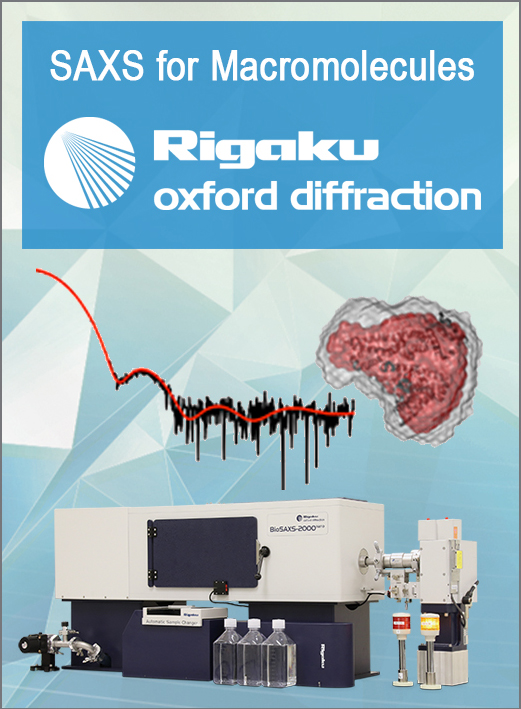


Regional news
Brief history and activities of the Bulgarian Crystallographic Society
![BCS NCS2016 [BCS NCS2016]](https://www.iucr.org/__data/assets/image/0010/136918/BCS_NCS.jpg)
Participants at NCS2016.
The Bulgarian Crystallographic Society (BCS; http://www.bgcryst.com/) was officially registered in Bulgaria in April 2010, and in 2011 applied for membership of the IUCr at its XXII General Assembly and Congress in Madrid, Spain. BCS was officially approved as an individual member (Category I) on 25 August 2011 (https://www.iucr.org/world/bg). BCS is also a member of the European Crystallographic Association (ECA).
Following the initiative of the IUCr for proclamation detailing the development of crystallography in South East Europe, BCS responded to the IUCr's request and prepared a summary of the development of crystallography in Bulgaria, which was published in one of the three Crystallography in South-Eastern Europe issues of the IUCr Newsletter [Crystallography in Bulgaria (2011). 19(4), 11-14].
Recent activities of the BCS (October 2016–November 2017)
During recent years, the National Crystallographic Symposium has won recognition as a leading scientific event, not only for the Bulgarian crystallographic community but also for participants from different European countries. These Symposia are the principal scientific activity of the BCS and reflect the current state of research in the fields of crystallography, crystal chemistry, crystal physics, mineralogy and materials science, and are thus characterized by an interdisciplinary spirit.
The BCS also organises specialized international and national workshops (supported by the IUCr and ECA) to promote crystallography among young scientists.
VIth National Crystallographic Symposium
The VIth National Crystallographic Symposium (NCS2016), held in the Grand Hall of the Bulgarian Academy of Sciences (BAS), Sofia, 5-7 October 2016, was the latest project of an initiative started at the beginning of 2009 by a group of Bulgarian crystallographers/enthusiasts, and is nowadays conducted under the auspices of the BCS. Following the path established during previous Symposia, the organisers - in conjunction with the BCS - have dedicated a special honorary sign to Kostadin Petrov from the Institute of General and Inorganic Chemistry (IGIC)-BAS. Professor Petrov was the first amongst the enthusiasts to start not only thinking about but also take action in establishing an independent crystallographic society in Bulgaria.
The NCS2016 lecturers were leading researchers in their respective fields: Svetlana Mintova (ENSICAEN, France), Katharina Fromm (University of Fribourg, Switzerland), Krzysztof Wozniak (University of Warsaw, Poland), Atul Khanna (Guru Nanak Dev University, India), Srebri Petrov (University of Toronto, Canada), Boriana Mihailova (University of Hamburg, Germany), Evdokiya Salamanova (Karolinska Institute, Stockholm, Sweden), Bogdan Ranguelov [Institute of Physical Chemistry (IPC)-BAS], Pavleta Shestakova [Institute of Organic Chemistry with Centre of Phytochemistry (IOCCP)-BAS], Radostina Stoyanova (IGIC-BAS), Yuri Kalvachev [Institute of Mineralogy and Crystallography (IMC)-BAS], Ivanina Sergeeva [Institute of Genetics (IG)-BAS], Alexander Karamanov (IPC-BAS), Liliya Vladislavova (Otto-Schott-Institut für Materialforschung, Friedrich-Schiller-University Jena, Germany), Tzonko Kolev [Institute of Molecular Biology (IMB)-BAS] and Galina Gencheva (Sofia University).
The audience included more than 130 scientists (110 registered) from 7 Bulgarian universities, 16 institutes of the BAS and scientists from universities and institutes in Poland, Switzerland, Germany, France, Sweden, Italy, Slovakia, Spain, Estonia, Turkey, the Republic of Macedonia, Czech Republic, Canada, USA and India. A total of 22 oral and 65 poster presentations involved more than 250 authors. It is worth noting that over 50% of the participants were students, PhD students and young scientists, who actively participated in the poster sessions. The organisers of the National Crystallographic Symposia try to encourage and support the scientific progress of young researchers, and for the second time, the organisers were supported by the Ministry of Science and Education and the Bulgarian National Science Fund through a grant (DPMNF 01/13-27.09.2016) especially targeting the young scientists. Members of the international jury had the difficult task of selecting the best young scientist poster presentation, which was awarded to Mariya Kalapsazova (IGIC-BAS) for presenting 'Diffraction methods for analysis of layered NaxNi0.5Mn0.5O2 as cathode materials'. The Symposium attracted the attention of several different Bulgarian official institutions: the Deputy Chairman of the Bulgarian Parliament, Ivan Ivanov; members of the Parliament's Commissions for 'Education and Science', 'Children, Youths and Sports' and 'Environment and Water'; Parliament's Deputy Chairpersons, Borislav Velikov and Vili Lilkov; the Minister of Education and Science, Meglena Kuneva; the Rector of the University Chemical Technology and Metallurgy, Mitko Georgiev; and the President of BAS, represented by the Vice President Corresponding Member, Nikolay Miloshev.
National workshop: Introduction to Powder X-ray Diffraction (IPXRD-2017)
This national workshop was conducted in the University Chemical Technology and Metallurgy in Sofia from 19 to 23 June 2017. It was organized by BCS with the active support of IGIC-BAS, the Institute of Mineralogy and Crystallography (IMC)-BAS, the Geological Institute-BAS, the Faculty of Geology and Geography of Sofia University 'St Kliment Ohridski', and the University of Chemical Technology and Metallurgy (Sofia). Predominantly young researchers comprised the 37 registered participants from Sofia, Plovdiv, Varna and other Bulgarian towns. Most of the participants were from the academic community (BAS, universities and museums) with a wide range of competence, from students up to associated professors and full professors. Interest was also shown by business and trade companies, namely Kaolin EAD (Senovo), Evrotest-Control (Sofia), Travel Management (Sofia) and Sensata Technologies Bulgaria Ltd (Sofia).
A cycle of lectures gave the participants basic knowledge of the crystallographic description of solid substances, the features of the X-ray beam and the principles of its use for analyses of powder materials. The exercises during the workshop were directed not only to the young researchers but also to specialists from companies with activities in the field of material science. Items discussed included how to use X-ray diffraction for the identification of crystalline phases and mixture of phases and how to obtain the maximum information from them: indexation of powder patterns, symmetry and unit-cell parameters, quantitative relations between phases, crystallite size and morphology determinations.
![[BCS Workshop]](https://www.iucr.org/__data/assets/image/0011/136919/BCS_workshop1.jpg) Participants at IPXRD-2017.
Participants at IPXRD-2017.
The lecturers shared their practical expertise in avoiding pitfalls when using powder XRD, i.e. factors that result in mistakes and discrepancies such as those associated with sample preparation; texture and preferred orientation of the crystallites; apparatus effects; position, thickness and roughness of the sample; and asymmetry.
All participants expressed an interest in participating in future workshops on powder XRD devoted to detailed and complex approaches that give valuable information for a wide range of materials. This workshop appeared to be a good model for collaboration between the Institutes of the BAS, Bulgarian universities and commercial companies.
International Autumn School on Fundamental and Electron Crystallography (IASFEC)
This School took place in the BAS Hotel, situated at the BAS Campus I in Sofia, from 8 to 13 October 2017. The main purpose of the School was to introduce the theoretical background of fundamental and electron crystallography to the participants and trainees, and to provide the young crystallographers with the opportunity to present their research results and exchange new ideas.
The School started with a half-day course, 'Introduction to Matrix Algebra', provided by Mois Aroyo (University of Basque Country, Bilbao, Spain). The topics of the School programme were divided into two parts. The first included 14 lectures dedicated to fundamentals of crystallography, presented by Massimo Nespolo (University of Lorraine, Nancy, France) and Mois Aroyo, both consultants and former chairs of the IUCr Commission on Mathematical and Theoretical Crystallography. The second part was composed of 17 lectures that illustrated the principles of electron crystallography, presented mainly by Joke Hadermann (University of Antwerp, Belgium). The main subjects were indexing of an electron diffraction (ED) pattern; calculation/simulation of a selected area (SA) ED pattern for a given compound (from cell parameters and zone axis); reconstruction of the unit cell from an SAED along different zone axes; connection of the symmetry in real space to that of the ED pattern; converged-beam ED; superlattices (subcells) and sublattices (supercells); and the determination of point groups and space groups from ED patterns.
![[BCS School]](https://www.iucr.org/__data/assets/image/0003/136920/BCS_school1.jpg) Participants at IASFEC 2017.
Participants at IASFEC 2017.
The 48 people who attended the school came from 11 countries and included 33 participants, the 3 invited speakers and the 12 members of the local organizing committee. Among the 33 participants (19 from Bulgaria), 23 were young scientists (PhDs, postdocs and junior researchers). Nine of them had been fully or partially supported by travel and subsistence grants.
Short Course Workshop: Intensive Practical Course on Powder X-ray Diffraction
In the period 5-8 November 2017, a group from the Geological Survey of the Republic of Kosovo and the University of Mitrovica 'Isa Boletini' in Kosovska, Mitrovica, visited IGIC-BAS and IMC-BAS. The Kosovan guests participated in this short course workshop, which was organized by the BCS and the two Bulgarian institutes.
![[BCS Course]](https://www.iucr.org/__data/assets/image/0004/136921/BCS_course2.jpg) The guests from the Republic of Kosovo in the XRD lab of the IGIC-BAS.
The guests from the Republic of Kosovo in the XRD lab of the IGIC-BAS.
The lectures presented basic knowledge of the crystallographic description of solid substances, the features of X-ray radiation and its use in the analysis of powder materials. The exercises were devoted to qualitative and quantitative phase analyses of geological and mineralogical samples. The colleagues from Kosovo showed interest in collaborating with the BAS institutes to obtain help and support in working with different apparatus for the investigation of materials, education in the framework of the PhD programmes in BAS, as well as participation in future scientific events in Bulgaria.
This short course workshop is a good example of collaboration between the countries in the Balkan region in action.
For forthcoming meetings in Bulgaria, see https://www.iucr.org/world/bg.
Copyright © - All Rights Reserved - International Union of Crystallography




